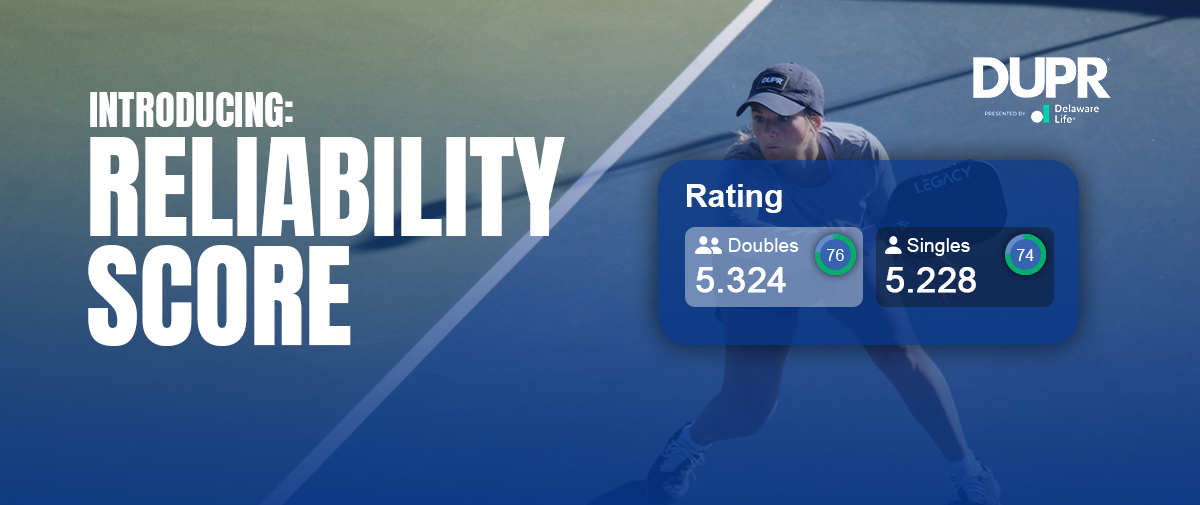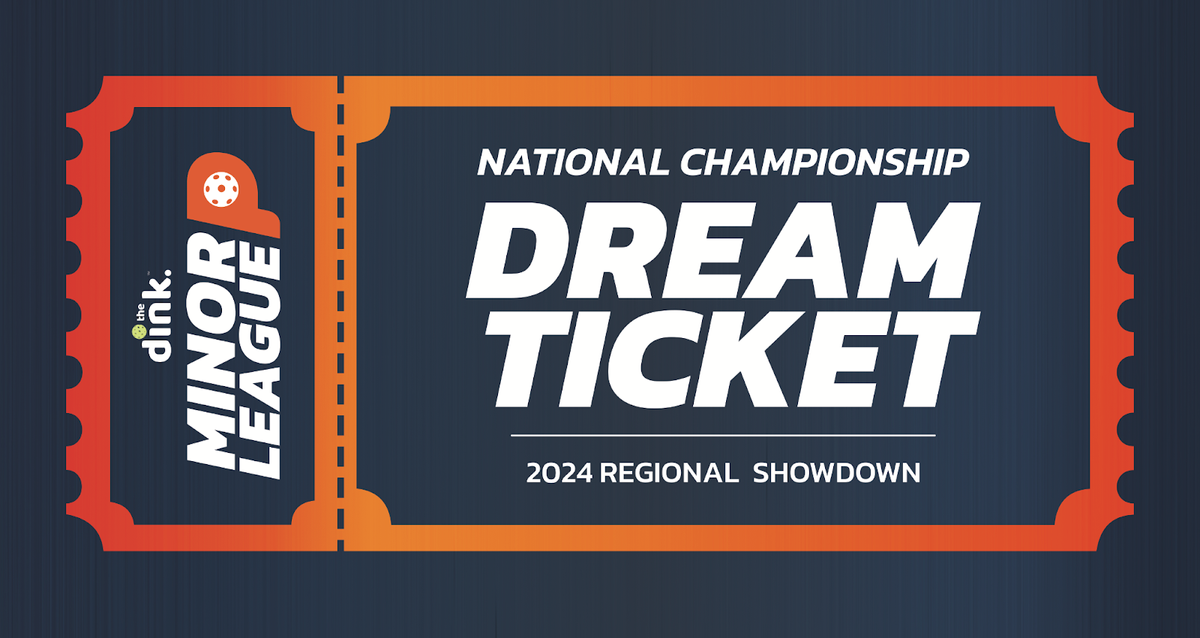
DUPR (Dynamic Universal Pickleball Rating) announced a new element to its rating system on Tuesday – the DUPR Reliability Score, its newest feature to help you better understand your rating.
Players will now have two numbers on their player profile: their DUPR Rating, which provides an assessment of your current pickleball skill level, and the Reliability Score, a percentage that indicates the level of confidence DUPR has in your rating based on the data in its system.
What is the reliability score? How is it different from my DUPR rating?
Your DUPR rating provides a real-time assessment of your pickleball skill level based on your match results. The reliability score measures how confident DUPR is in your rating based on how many matches you’ve played and your connectivity to the rest of the pickleball population.
A player’s reliability score is calculated as a percentage between 1 and 100, with 100 percent being fully reliable. A reliability score of at least 60 percent means you have a reliable rating. Both singles and doubles ratings have a corresponding reliability score.

What does it measure?
The reliability score measures how confident DUPR is that a player's rating is an accurate representation of their current level based on match history and connectivity to the population. New players will have lower reliability scores, players that have more results and play frequently will have higher reliability scores.

What is a good reliability score?
If a player has a reliability score of 60 percent or higher, it means the system is confident in the accuracy of a player’s rating. Reliability scores that are lower than 60 percent indicates that more results need to be entered into the system. A rating of 100 percent is considered to be fully reliable, but anything above 60 percent is a good reliability score.
How does the reliability score help players?
A reliability score provides a measure of how confident DUPR is about your rating. Players who have more results in DUPR will have a more reliable rating because there are more match results to offer a more in-depth view of your ability. A player who is just starting out will have a lower reliability score because DUPR does not have as many results to analyze. As players play more and share their results with DUPR, their rating becomes more and more accurate, and their reliability score will go up.
For example, a player who consistently plays and enters match scores will have a more reliable rating than a player who has played once or twice, or only plays against the same person. As you play more, enter your scores and play a broader range of people, your DUPR rating becomes more reliable.
What will reliability score be used for?
Players can use the reliability score to have more insight into their rating and a better understanding of their current rating. Clubs can use the reliability score to better evaluate players, and may even use it as a threshold for event eligibility to ensure players have a good, competitive experience.
How can I make my rating more reliable?
Play more. Your match count and the recency of those matches are a big component of your Reliability Score. But not all matches are equal in how much new information they provide to the accuracy of your rating. In order to make your rating more reliable, focus on playing matches that satisfy the following criteria:
- Play with various partners and opponents
- Play against similarly rated opponents
- Play Club/Tournament Matches
- Play against highly-reliable players
How should I expect my reliability score to move over time?
Each match you play will increase your score, but the amount it goes up will depend on many factors that consider how much new information we are getting from the match. Since your Reliability Score is measuring our confidence that the rating is an accurate representation of your current skill level, your score will decrease over time if you are not recording matches.
What are the steps I can take to get a passing Reliability Score?
There are many ways to get a passing reliability score (60 percent). The key here is that there are many paths you can take to make your rating more reliable, but some paths might require more matches than others. The biggest takeaway is to play frequently and against a broad group of players, so that DUPR’s system has more information on your performance.

Here are some paths you can take to get a good reliability score. Each match represents one game. Matches with more games will count because there will be more information input into the rating system.
Doubles Paths:
- Two CLUB matches per week for four weeks, with 60 percent reliability teammates/opponents
- Six CLUB matches in one weekend, with 60 percent reliability teammates/opponents
- One CLUB and one Rec match per week for four weeks, with 100 percent reliability teammates/opponents
- One CLUB and one Rec match per week for six weeks, with 60 percent reliability teammates/opponents
- Five REC matches per week for seven weeks, with 60 percent reliability teammates/opponents
- Five REC matches per week for five weeks, with 100 percent reliability teammates/opponents
Singles Paths:
- One CLUB match per week for three weeks, with 60 percent reliability teammates/opponents
- Two REC matches per week for five weeks, with 60 percent reliability teammates/opponents
How do I maintain a good Reliability Score?
Keep playing and play with a broad group of competitors. Your reliability score will decrease over time if you do not record new matches. To maintain your reliability score, we encourage you to log matches on a consistent basis.

For example, a fully reliable rating could decay to the 60 percent passing threshold over the course of roughly six months without play. A 60 percent passing score can drop to 30 percent score over the course of three months without play. A 30 percent score can drop to just under 10 percent over the course of six months.
This is because DUPR’s rating places more emphasis on more recent matches as that provides a more accurate assessment of your current skill level. Older matches do not have as much impact on your rating.
Is reliability or my rating more important?
Your DUPR rating is the most accurate assessment of your skill level. The reliability score is a supporting measure that showcases how you can get your rating to be even more accurate.
As players begin to play and enter scores into DUPR, ratings can fluctuate early on in their DUPR journey as they play different players. As players continue to play and enter more scores, the confidence in their assessment increases.
How often will my Reliability Score update?
Your Reliability Score will update weekly on Tuesdays.












